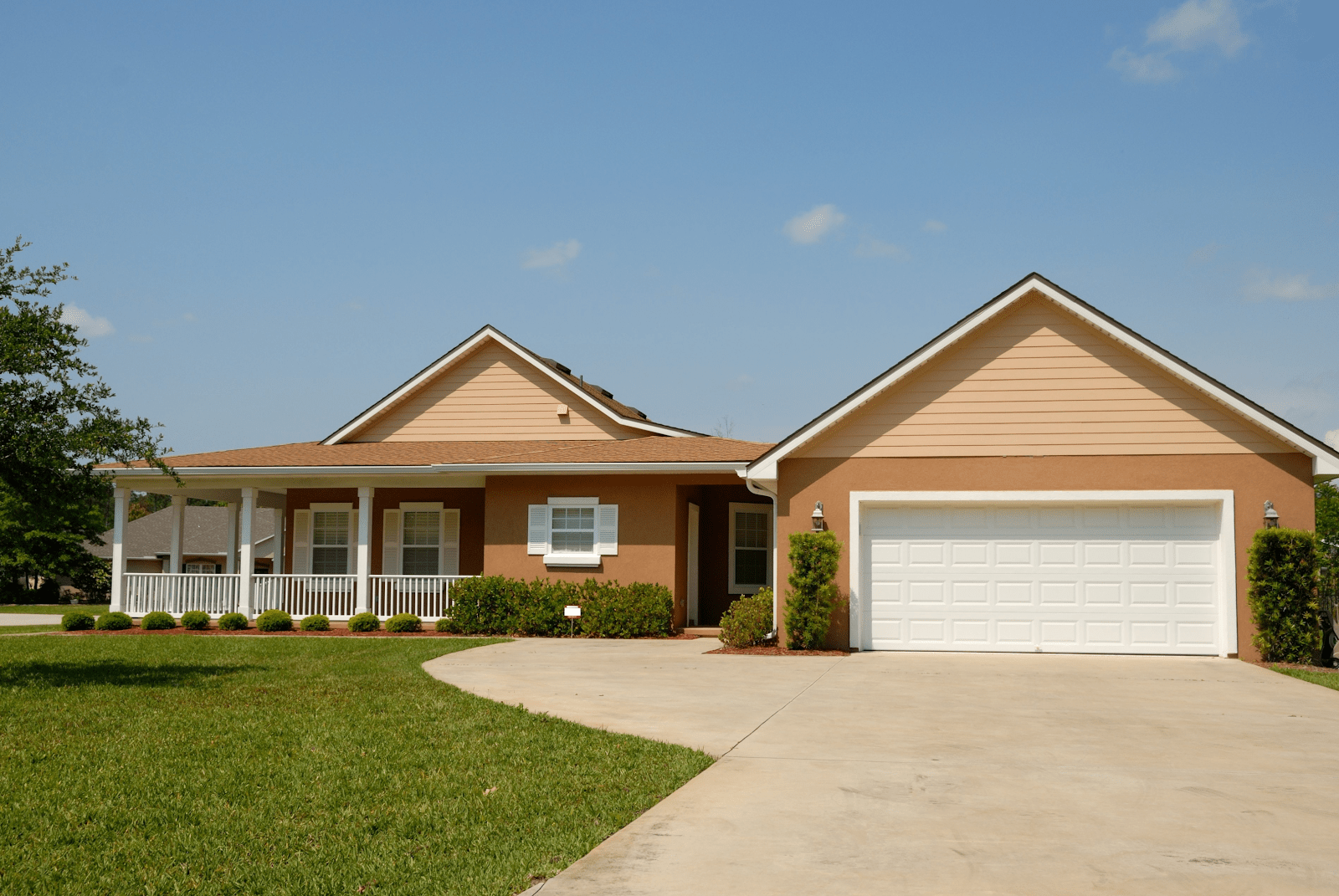
For those who are planning to acquire a new home, the question of when the first mortgage payment is due is an important one. As you progress through the home buying process, you will encounter many parts that are dependent on each other. Many of these components involve money management and different borrowing options. There’s often a gap between loan closing and the due date of the first monthly payment. But, when do those mortgage payments start?
This article covers the basics of when your first mortgage payment is due so that you have the information you need to protect yourself. We will walk you through the various steps to ensure that you make educated decisions in the process of buying your new home.
Two Key Components of a Mortgage Payment
A mortgage payment is made up of two components: interest and principal. You are usually expected to make your mortgage payment on or before the first day of each month. However, the due date of your initial payment is at the beginning of the next month following your closing. So, if you close on August 5, your first payment would be on October 1st. This gives you an extended period before your first payment deadline.
Let’s take a look at two important factors you should understand about mortgages.
1. Mortgage interest is paid in arrears.
Mortgage Interest is a fee charged by lenders for borrowing money. It’s calculated as a percentage of the amount owed. The amount of mortgage interest payment, and when it is paid, is a bit more complicated than it might seem.
A good way to understand how it works is to think of a rent agreement. When you rent an apartment, you pay the landlord your rent at the beginning of each month. The landlord then pays that money into his bank account. He uses the month’s rent to cover the cost of the mortgage that he pays on the property each month.
Payment of interest on a mortgage is made in arrears, which means after it’s accrued, not before. This is why you pay your first monthly rent payment upfront. Your monthly rental payment covers the rental costs for that same time period.
Mortgages work in exactly the same way as rents do, except backward. Rather than making a payment after you’ve already used what was purchased – as with rent – you make a mortgage payment before you’ve used what was purchased (the house).
At closing time, the buyer pays for the mortgage principal for that day and any accrued daily interest from the closing day up until the last day of that month. To give you an example, your first mortgage payment will be due on October 1st if you close on August 5th, and it will include interest that accrued from August 5th until September 30th.
2. The principal is paid in advance.
The principal portion of your mortgage payments is the amount you borrowed. It is paid in advance, which reduces the remaining balance of the mortgage. This means that the interest you will be charged on the remaining balance is less. You will continue to pay the loan principal and interest each month, reducing the balance you owe until you pay off the loan.
In addition to the above, other factors include taxes, insurance, and homeowners association (HOA) fees. A complete list of closing disclosure will be provided by your lender which includes the actual costs of settlement and the detailed parameters of your loan.
Your Closing Date Determines Your First Mortgage Payment

Your first mortgage payment schedule is determined by the closing date. You might be required to pay interest for the first month at closing. For example, if your closing date is on August 5th, your first payment is due on October 1st.
Equally important to the mortgage loan amount and monthly payment is the period in which payments are made. It may seem like a minor thing, but knowing when the first mortgage payment is due, as well as what day of the month that payment will be applied to each billing cycle, can often help you save hundreds of dollars.
Closing Costs Include Prepaid Interest
After you close on a new mortgage, you will accrue interest for the number of days before the first full month.
Closing on your home on August 5 means that you will prepay for any interest that accrued from August 5 to 31. This payoff will be reflected on the first monthly mortgage payment you make in October.
The closing disclosure on your mortgage loan—provided by your lender—lists all the fees and other costs associated with your loan. Prepaid interest fees appear in the Other Costs section. Your loan officer should be available to help you understand all the components and factors affecting your mortgage loan payment schedule.
If you’re looking to refinance or get pre-approved for a loan, connect with a top mortgage lender right away. Regardless of when your house loan comes through, you should have adequate money saved for closing fees.
How to Choose the Best Closing Date
Now that you’ve got a good understanding of when a first mortgage payment is due, how interest and principal payments operate, and how partial monthly interest costs are paid at closing, let’s find out how to choose the best closing date.
Closing Early in the Month
You will have extra time before making your first mortgage payment if you close early in the month. The schedule of your initial payment will be on the first day of the month after you have moved into your new house for more than 30 days. To give you an example, your first payment is due on October 1st if you choose to close on August 2.
If you want to pay off your mortgage sooner rather than later, this is the way to go. To manage your cash flow, you can keep closing fees low.
But don’t forget about other prepaid expenses like homeowners insurance, property taxes, and HOA dues, which may increase if your loan closing date occurs in the following month.
There is an advantage to closing early in the month: mortgage lenders are often far less busy. The lender is typically more willing to work with you if you’re closing early because they don’t have as much to do at that time of year. For example, if you’re looking at a loan that will be funded in June, and you want to close on May 2nd, the lender wants to see that everything is in place before they can close.
But one thing to keep in mind is that all these considerations may not apply if you’re planning on refinancing your home or taking out a new mortgage after the current one runs its course.

This exception comes up around tax time because people often finish up their old mortgage by April 15th and have cash coming out of their ears.
Closing in the Middle of the Month
If you choose to close in the middle of the month, you would have a month and a half from the end of the closing month to make your first month’s payment. As an example, closing on August 15 would mean that your first mortgage payment schedule will be after 45 days, which is October 1. Your pre-paid interest will start in the second half of August.
Closing at the End of the Month
Closing on August 29 will render your first mortgage payment schedule on October 1, which allows you to enjoy just over thirty (30) days. However, one of the advantages of closing at the end of the month is that the closing costs are lower as you will only be paying for prepaid interest equivalent to one day’s worth. You can ask your lender about this.
How to Save on Prepaid Interest

Closing at the end of the month will save you money. This is lower than the amount of prepaid interest owed, although it has minimal long-term benefits. Your first mortgage payment, however, will be due sooner.
You will incur more days of prepaid interest at closing if you pay off your mortgage early in the month. As shown in our example above, you will have a longer waiting time until your first payment schedule. For example, closing on August 7th requires you to pay for around three weeks in interest at closing, but you’ll have roughly two months to make your first mortgage payment.
Because mortgage lenders often let you pay up until the 15th of the month, you might have more than two months before the first payment is due.
The Bottom Line
Mortgage payments can be confusing, and managing your finances is tricky enough without having to worry about when your mortgage payment is due. Fortunately, there’s a simple way to figure out when that first mortgage payment will be due.
Knowing how to save on prepaid interest is also important. A delayed closing date reduces your prepaid interest payments, but it also means your first mortgage payment is due in a little over a month. A date earlier in the month, on the other hand, will provide you more time before your first payment but will result in a considerable prepaid interest amount, increasing your closing expenses.
You should weigh your cash on hand against your projected cash flow. This might help you decide which is more important: decreasing your closing expenses or having more time until your first payment, allowing you to earn more money before your monthly payments begin.

In her 25-year career, Steph Wilkinson has been involved in the acquisition, marketing and sales of over $3 Billion dollars of residential real estate. A number of years ago, Steph transitioned into Brokerage Leadership for National real estate brands and tech start-ups. She has served as a Business Strategist for real estate agents and brokerages alike and is also a real estate coach and trainer. In her new role with the Iconic Team, Steph will be responsible for the growth of the team and will be working with all of our agents to increase their productivity and bottom line.




